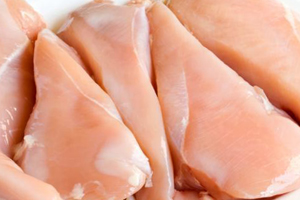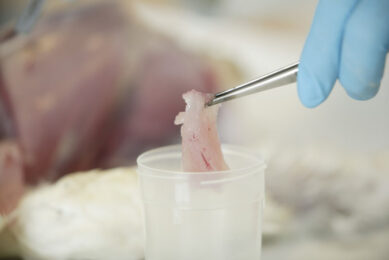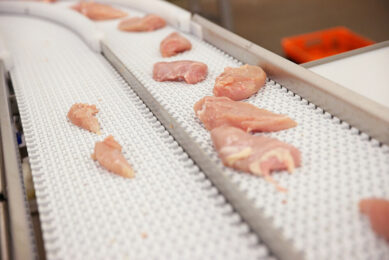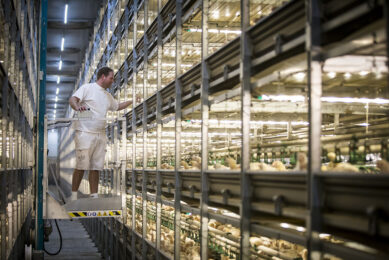Research: Pre-incubation conditions effect on Staphylococcus aureus

Spanish researchers have published a study on the effect on pre-incubation conditions on S. aureus in cooked chicken breast. While pH and water activity can delay S. aureus growth at 20 °C, pre-incubation conditions had no effect on enterotoxin production.
The work evaluated the effect of pre-incubation conditions (temperature: 10, 15, 37 °C; pH 5.5, 6.5 and water activity, aw: 0.997, 0.960) on the subsequent growth, survival and enterotoxin production (SE) of Staphylococcus aureus in cooked chicken breast incubated at 10 and 20 °C.
Results showed the ability of S. aureus to survive at 10 °C when pre-incubated at low aw (0.960) what could constitute a food risk if osmotic stressed cells of S. aureus which form biofilms survive on dried surfaces, and they are transferred to cooked meat products by cross-contamination.
Regarding growth at 20 °C, cells pre-incubated at pH 5.5 and aw 0.960 had a longer lag phase and a slower maximum growth rate. On the contrary, it was highlighted that pre-incubation at optimal conditions (37 °C/pH 6.5/aw 0.997) produced a better adaptation and a faster growth in meat products what would lead to a higher SE production.
These findings can support the adoption of management strategies and preventive measures in food industries leading to avoid growth and SE production in meat products.
Source: Meat Science












